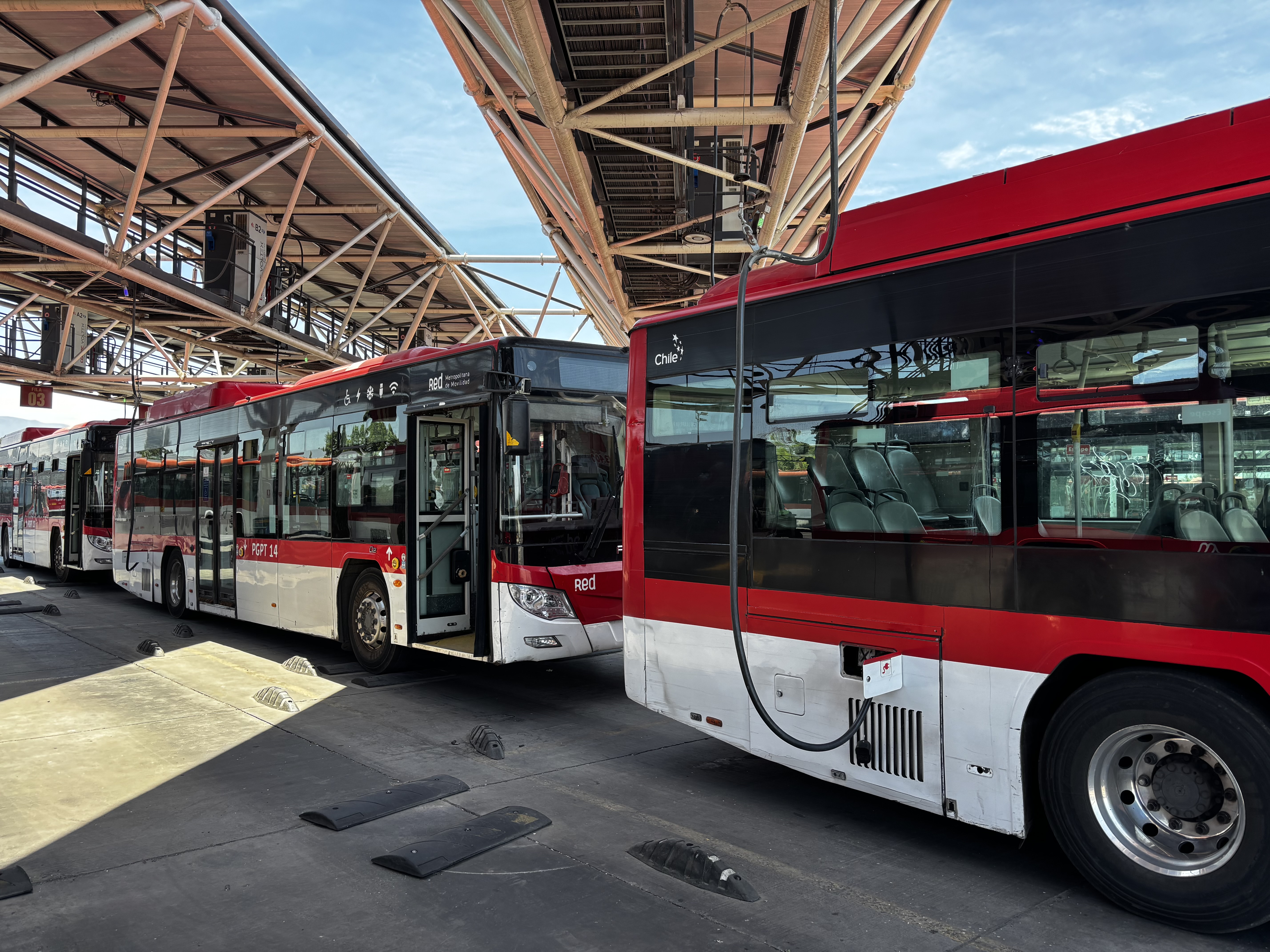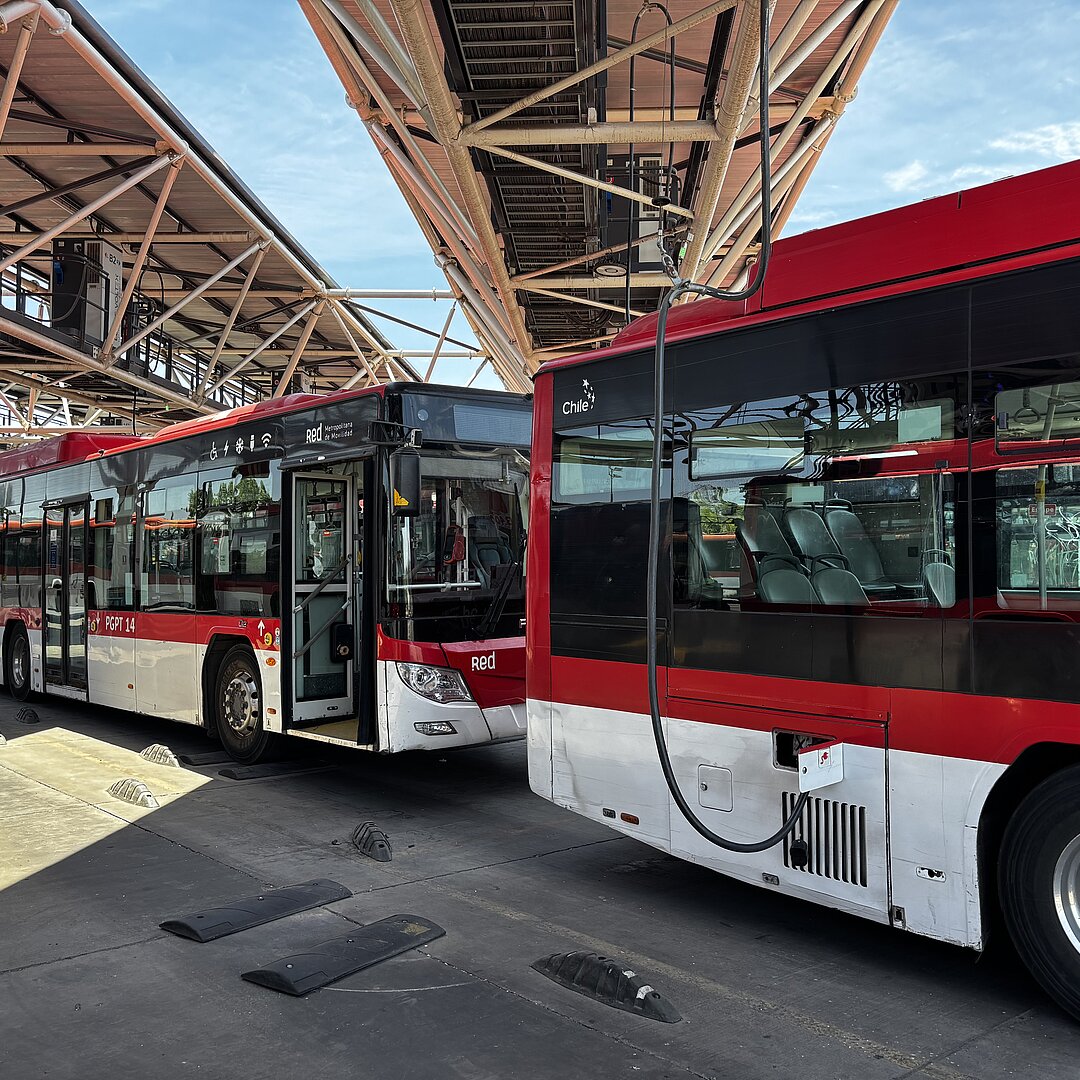This content is also available in: German
Chile: A pioneer in e-bus transport
A new study by Agora Verkehrswende showcases Santiago de Chile’s success in adopting e-buses. Long-term planning and flexibility have been pivotal to the Chilean e-bus strategy, which can serve as an example for other nations.

22 September 2025. Over the past decade Chile has emerged as a global leader in the adoption of electric buses in public transport. The Chilean capital Santiago now boasts more than 3,000 e-buses, representing 40 percent of the municipal transport fleet. Only two cities worldwide – both in China – have larger e-bus fleets. In a new study, the Berlin-based think tank Agora Verkehrswende analyses the policy mix that enabled this success, ultimately spotlighting a best-practice case that can be emulated by other countries with similar ambitions. The study also discusses prospective measures for accelerating the broader transition to e-mobility.
“Chile’s success in switching to e-buses is based on three key factors: Clear goals, consistency in pursuing them, and the flexible adjustment of policy measures,” says Linda Cáceres Leal, International Cooperation Analyst at Agora Verkehrswende. “Stable financing, favourable energy market conditions, and targeted skill-development measures have all helped EV bus adoption to flourish. Chile’s approach can serve as a role model for other countries seeking to expand e-mobility.”
Key components of the Chilean e-bus strategy include: overarching, long-term goals for the expansion of e-mobility; competitive bidding procedures for all-electric bus fleets; and flexible power tariffs that enable more affordable charging. For over a decade Chile has remained committed to the goal of fleet electrification, despite turnover in policymakers. The study highlights this dedication as perhaps the most crucial factor for success. Importantly, Chilean stakeholders actively evaluated policy measures over time, adjusting them when necessary. This has provided long-term planning security for fleet operators while also making the public transport sector attractive for foreign and domestic investment.
Looking beyond the Chilean capital, e-bus adoption has been sluggish. Additionally, Chile’s transition to e-mobility in the heavy-duty-vehicle and passenger-car segments remains for the moment at an early stage. The study identifies comparatively high EV purchase costs and inadequate charging infrastructure as major obstacles to adoption. In light of these limitations, the study underlines opportunities for accelerating the national transition to e-mobility in road transport.
With regard to the German automotive sector, Christian Hochfeld, Director of Agora Verkehrswende, says: “Chile is an example that the transition to battery-powered e-mobility in road transport is not limited to the Global North. The belief that internal combustion engines will remain commercially viable over the long term may soon prove misguided. Export-oriented automotive nations like Germany must switch to e-mobility as quickly as possible if they wish to remain internationally competitive. If the federal government hopes to strengthen German industry, it should do everything in its power to accelerate this transformation. The future of global road transport is electric – either with or without Germany.”
The full study is available for download free of charge here: www.agora-verkehrswende.org/publications/chiles-path-to-electromobility
About Agora Verkehrswende
Agora Verkehrswende is a Berlin-based think tank that seeks to promote climate-friendly mobility. Non-partisan and non-profit, it works together with key stakeholders in the fields of politics, business, academia, and civil society to decarbonise the transport system. To this end, the think-tank team develops evidence-based policy strategies and recommendations. Agora Verkehrswende was initiated in 2016 by Stiftung Mercator and the European Climate Foundation.


